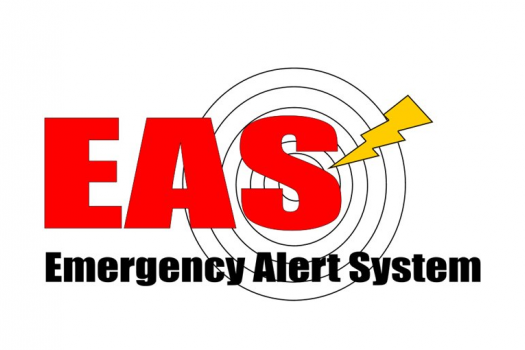FCC Updates Emergency Alert Rules
The new rules will make TV and radio alerts clearer and more accessible to the public

WASHINGTON, D.C.—The Federal Communications Commission (FCC) has updated its Emergency Alert System rules so that alerts delivered over television and radio are more informative and easier to understand by the public, particularly people with disabilities.
In December of 2021, the FCC had proposed updating the rules to make them more accessible and launched a Notice of Proposed Rulemaking and Notice of Inquiry on the subject.
In announcing the new rules, the FCC noted that the Emergency Alert System, which is used by government agencies to send alerts and warnings to the public over television and radio, consists of both a legacy system and an Internet-based system, with the latter offering superior messaging capabilities, the FCC explained.
The updated rules require broadcasters, cable systems, and other Emergency Alert System participants to transmit the Internet-based version of alerts to the public when available, rather than transmit the legacy version of alerts.
The FCC said that the increased use of Internet-based alerts, in Common Alerting Protocol format, will produce higher-quality audio messages, improve the availability of multilingual alerts, and ensure that more of the alerts displayed on television screens contain all of the information provided by the government.
The updated rules will also replace the technical jargon that accompanies certain alerts, including test messages, with plain language terms so that the visual and audio messages are clearer to the public.
The update also means that people who are deaf or hard of hearing will have access to alerts in a viewable format that more closely matches the audible versions of these alert messages on television.
Get the TV Tech Newsletter
The professional video industry's #1 source for news, trends and product and tech information. Sign up below.
In addition, people who are blind or visually impaired will have access on their radios to national alerts containing more detailed audio information. Clearer and more accessible alerts will help all Americans prepare for and respond to emergencies.
The new rules were approved by Chairwoman Rosenworcel, Commissioners Carr, Starks, and Simington.
George Winslow is the senior content producer for TV Tech. He has written about the television, media and technology industries for nearly 30 years for such publications as Broadcasting & Cable, Multichannel News and TV Tech. Over the years, he has edited a number of magazines, including Multichannel News International and World Screen, and moderated panels at such major industry events as NAB and MIP TV. He has published two books and dozens of encyclopedia articles on such subjects as the media, New York City history and economics.

